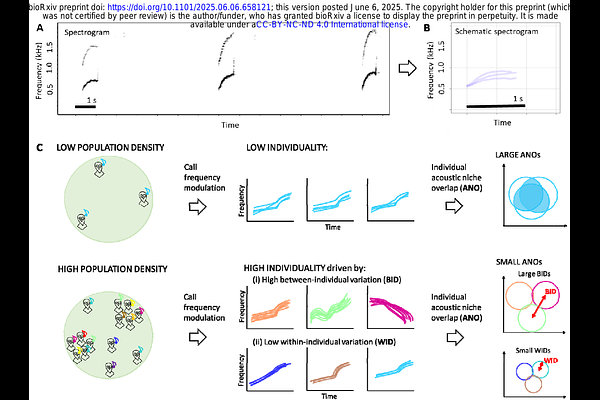Social environment affects vocal individuality in a non-learning species

Social environment affects vocal individuality in a non-learning species
Madhavan, M.; Hornatova, L.; Salek, M.; Pruchova, A.; Linhart, P.
AbstractIndividual recognition is fundamental to the social behaviour of many animals. In high-density populations, animals encounter and compete with conspecific rivals more frequently, which should enhance the individuality of their signals to facilitate recognition among neighbours. We investigated vocal individuality in male territorial calls of two populations of little owls (Athene noctua) with different densities. Further, to explore the potential influence of local population distribution on individuality, we also examined isolated males without neighbours and clumped males with neighbours. Our findings indicate higher individuality at higher densities across both scenarios, measured using two individuality metrics: Beecher\'s information statistic and Discrimination score. Additionally, clumped males exhibited significantly lower acoustic niche overlaps compared to isolated males, suggesting that the immediate social environment might be more influential than larger-scale population density patterns. This study is the first to demonstrate that vocal individuality in a territorial species is influenced by conspecific density, similar to findings in group-living and colonial species.